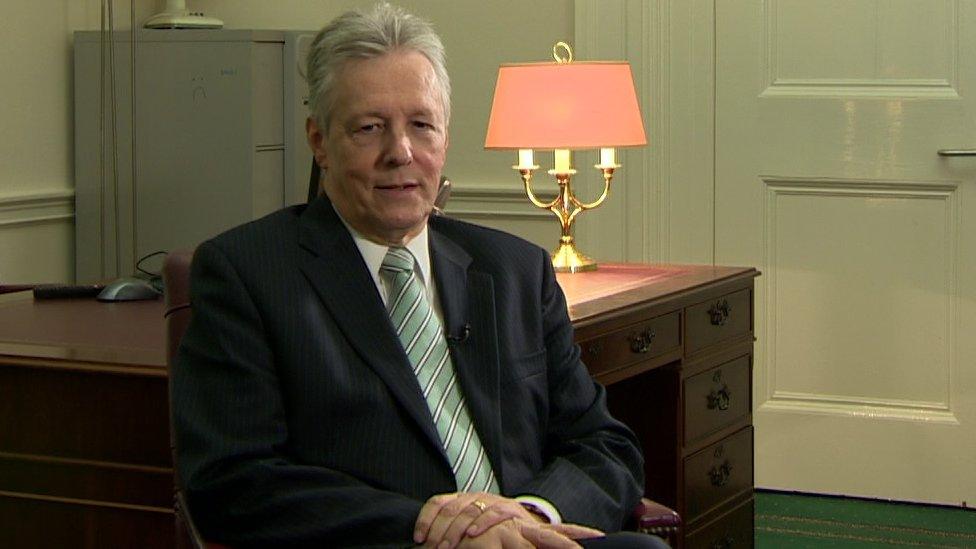Arlene Foster says rebellion 'gave succour to violent republicanism'
- Published
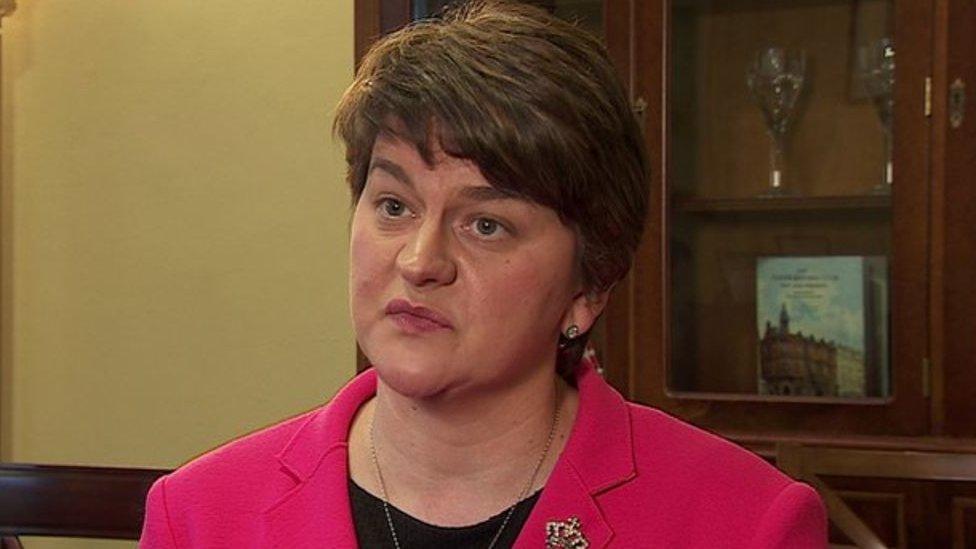
Arlene Foster will become Northern Ireland's first minister on Monday
Northern Ireland's first minister-in-waiting, Arlene Foster, has said she would not attend any events to commemorate the centenary of the Easter Rising.
In an interview for the BBC on Sunday, the Democratic Unionist Party leader called it "a very violent attack on the state".
It was one that "gave succour to violent republicanism", she said.
Mrs Foster is about to become Northern Ireland's youngest ever leader.
She will also be the first woman to hold the role when she takes the reins at Stormont on Monday, the day MLAs return to their debating chamber after the winter break.
The 1916 Easter Rising was the seminal event that led to Irish independence and, in some ways, to the creation of Northern Ireland.
It was a republican rebellion that lasted from 24 April (Easter Monday) to 30 April 1916.
The aim was to end British rule in Ireland and to establish an independent Ireland as a republic.
Despite its military failure, the Easter Rising is seen by many as being a significant stepping-stone in the eventual creation of the Republic of Ireland.
Arlene Foster, 45, is already a Stormont Executive veteran and the longest serving woman in it.
She has been a minister since 2007 and has held three portfolios - environment, enterprise and finance.

Arlene Foster has experience of some of the most high-profile posts in Northern Ireland politics and has long been tipped for Stormont's top job.
The Fermanagh politician has had a rapid rise through the DUP ranks since joining the party from the Ulster Unionists in 2004.
She was born Arlene Kelly in Roslea in 1970.
Her first experience of Troubles violence came when she was just eight years old.
Her father was a part-time policeman and was shot by the IRA at the family farm.
When she was a teenager in 1988, a bomb exploded under her school bus.

Speaking to Radio Ulster's Sunday News, she said she had always been involved in politics, not because of her gender, but because of her passion for it.
"People do want to see real change," she said, adding that she would be looking towards the future.
Mrs Foster said last year had been "turbulent" for Northern Ireland, but underlined: "We dealt with it by talking to each other, negotiating and planning for the future."
Her priority would be the economy, she said, and that would offer hope to young people.
She also spoke about her own past and how that had shaped her.
Her father was a part-time policeman and was shot by the IRA at the family farm when she was eight years old.
"I have been a victim of IRA violence, I carry that with me, I want to look to the future and build for that," she said.
"We have the vision for Northern Ireland moving forward. We believe in Northern Ireland as a country."
Although she said that it would not be right for her to take part in the centenary commemorations of the Easter Rising, she was clear that she would represent everyone who is a democrat.
"People are nuanced enough to know that I am very open and will represent democratic nationalists and democratic unionists in Northern Ireland," she said.
"I certainly will not be representing violent republicanism."
Mrs Foster said she hoped her position as the first woman to be leader, would give confidence and aspiration to other women, regardless of their background to get involved in politics.
On a personal level, she said Monday would be "a mix of emotions" for her. There would be sorrow that her father did not live to enjoy the day.
But there would be happiness too.
"My mum and my husband will be present. It will be a very joyous day," she said.
"I am conscious of the fact that I step forward as the leader of Northern Ireland, that is a huge responsibility and I am aware of that."
- Published31 December 2015
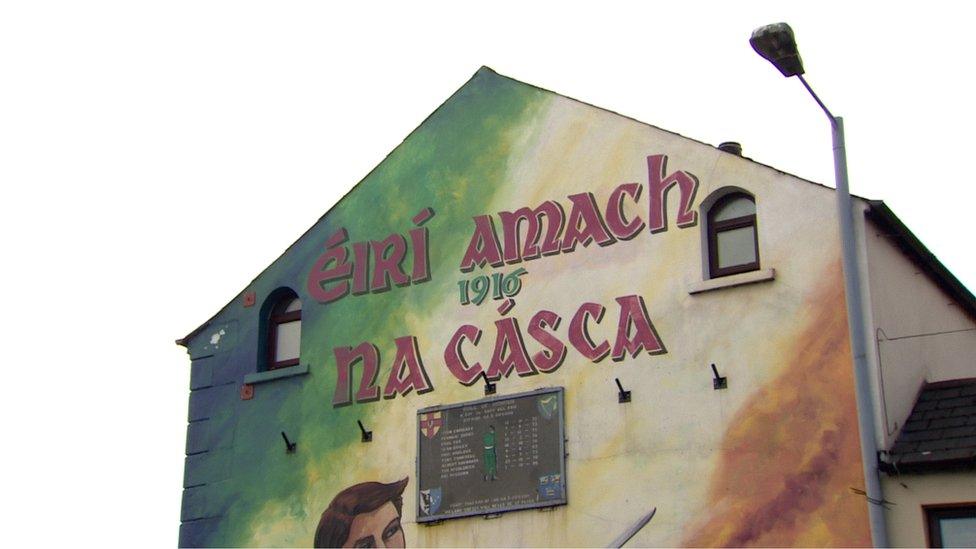
- Published17 December 2015
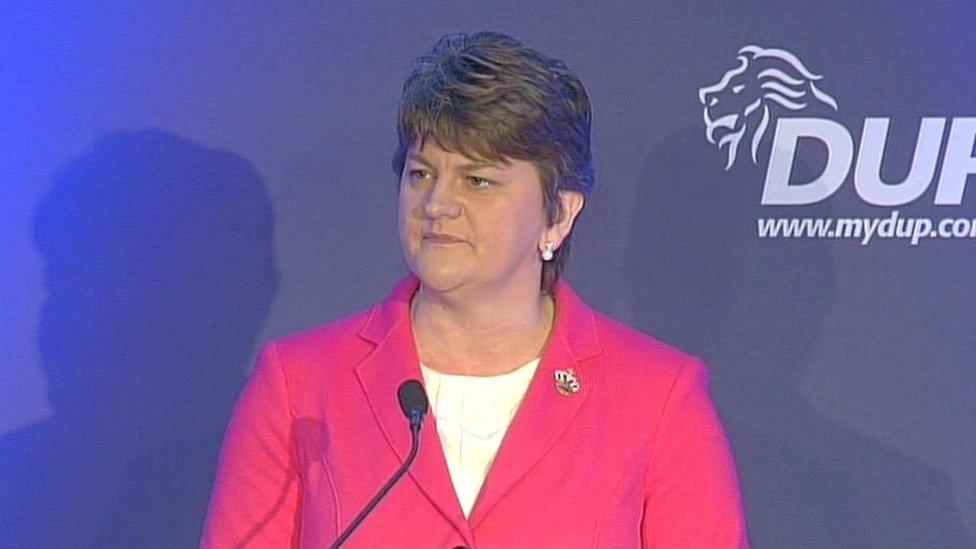
- Published13 June 2017
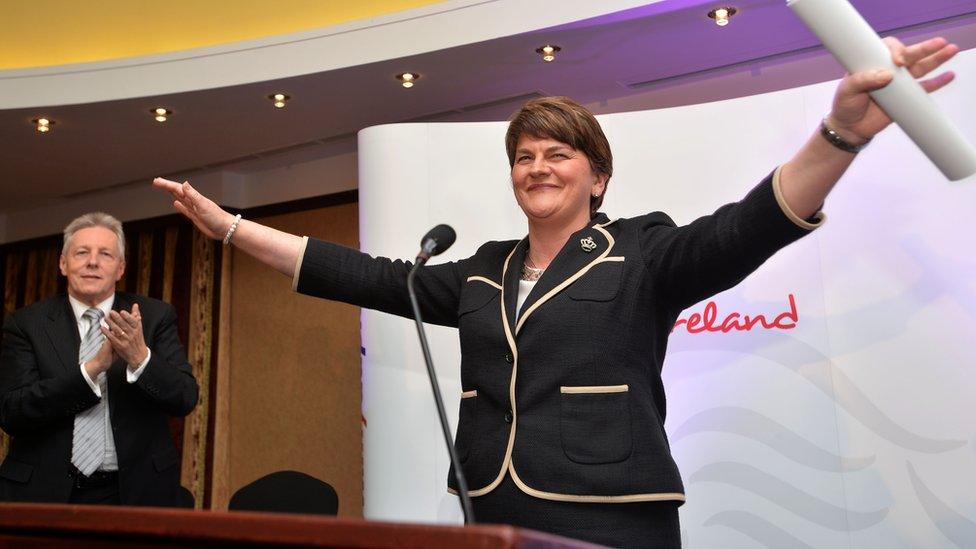
- Published8 December 2015
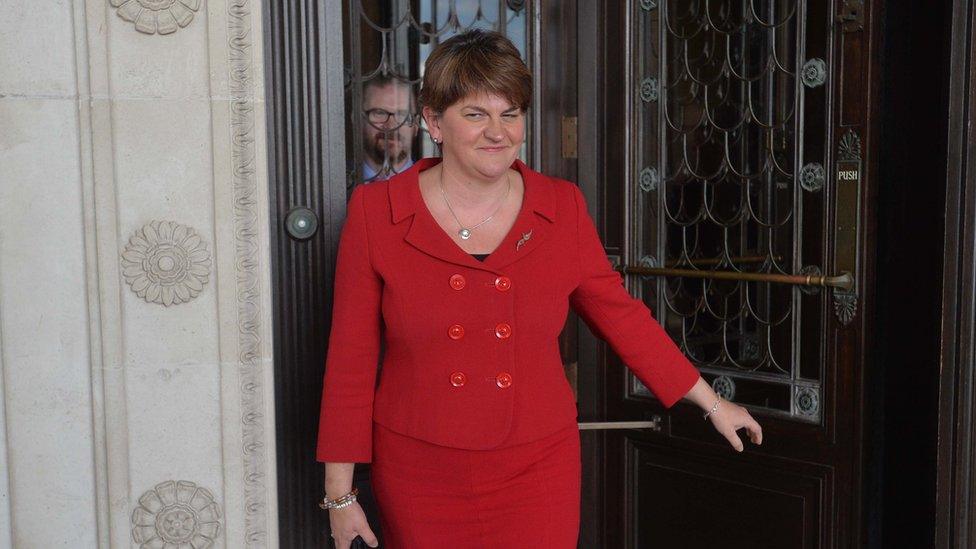
- Published7 December 2015
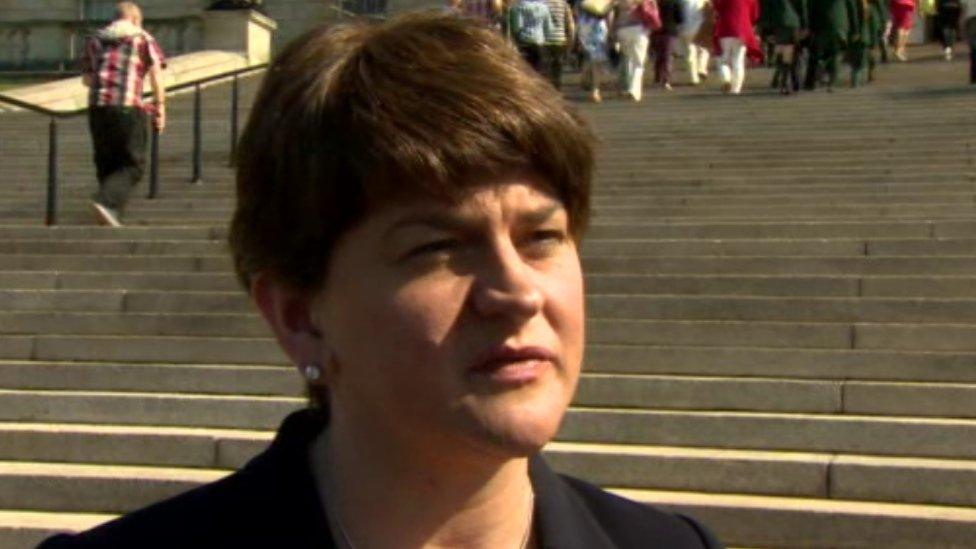
- Published19 November 2015
